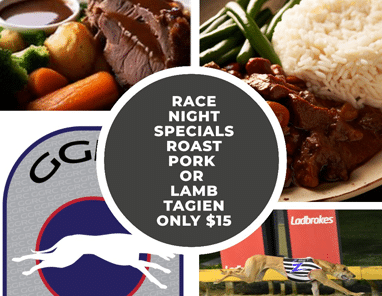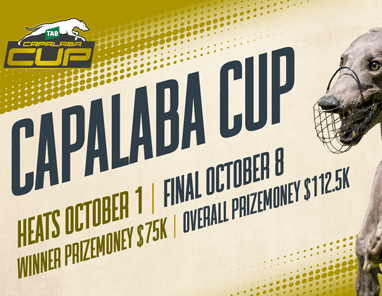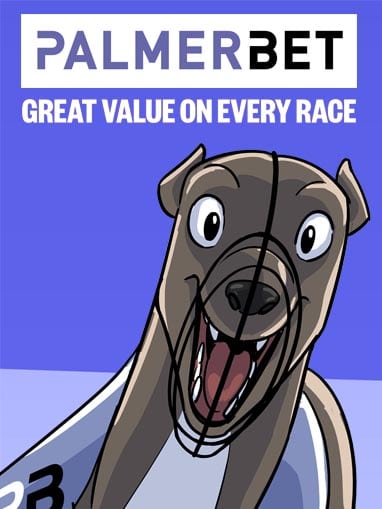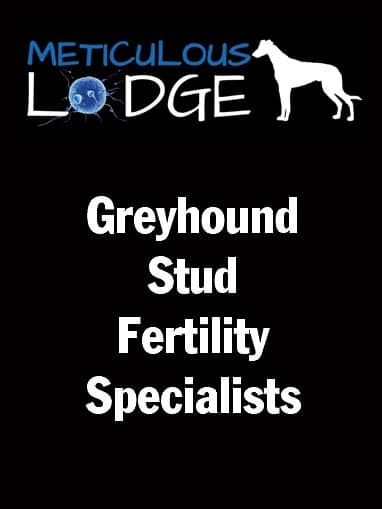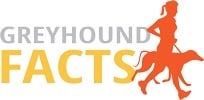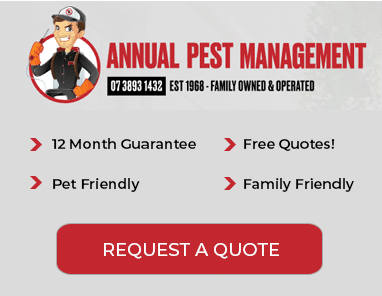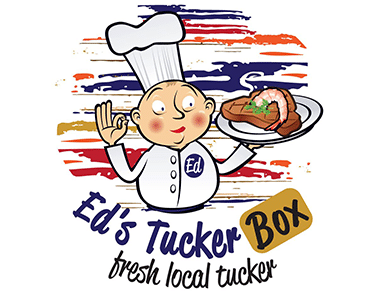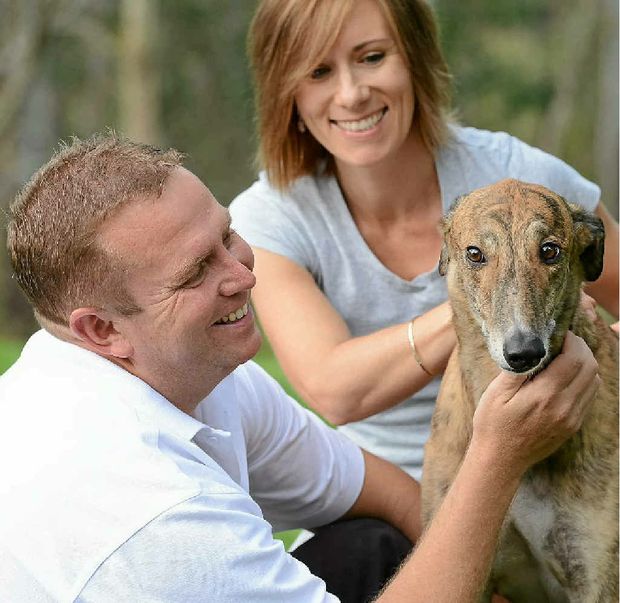
Caption: Tony Brett, wife Fleur and champion Glen Gallon (Photo courtesy Gatton Star).
(Chase Newspaper September 2023 edition)
Premier Queensland trainer Tony Brett and his wife Fleur are on their dream holiday in Europe. While they are enjoying a very rare break from the day-to-day rigours of greyhound training we thought it would be timely to run the very first Chase Trainers Column, which appeared in our November, 2015, edition. These are Tony Brett’s thoughts on training … almost eight years ago.
- How did you get involved in greyhound racing?
My Mum and Dad were involved when greyhound racing started up in Mackay. So I’ve been around the dogs since I was about five years old. They say racing is in your blood, but my brother who is two years younger than me was brought up around them the same way I was, yet has no interest whatsoever in greyhound racing.
- Who has been the greatest influence on you as a trainer?
My Dad and Mum have had the biggest influence on me insofar as how I train my race team. We are still basically training dogs how Dad did it 40 years ago. But as far as influences go it has definitely been my wife, Fleur. Fifteen years ago Dad asked us if we were interested in moving on to the property and training dogs with them. If Fleur had said ‘no that’s not for me’, we wouldn’t be here now. You can’t train dogs without a great team around you. For me, that’s my family. Fleur has gone from someone who had never touched a greyhound to now playing a massive role in the success we have had. I couldn’t do it without them.
- At what age do you start preparing a pup for its first race?
I generally don’t put them into work until they are at least 15-16 months old.
- How long does it take to prepare a pup for its first race?
Usually I will have a pup ready to race in about 10-12 weeks from when they arrive. But there are always small breaks which add to that time. Whether it’s with a small injury or needing to spend more time doing extra box-work. Some pups take longer to handle different tracks. They are all different and we adapt their pre-racing preparation accordingly.
- What makes a good pup?
You can usually tell a really good pup within the first month. The better ones just do things a lot easier. They will run you a quick sectional somewhere no matter what track you put them on. They may not handle a track brilliantly but one of their sections will stand out. From then on they just keep improving. Queen Lauryn never handled the home turn at Ipswich in any of her trials, she always ran wide. But she would always trial within a tenth of the track record.
- Do you do anything special when preparing a runner for its first start?
They all get the same pre-race prep regardless if it’s their first start or they are lining up for The TopGun. All the work is done in the lead-up. They are fit, they are sound and they are pumped to be going racing. They love it, first starters especially.
- Do you have a set routine for all runners or do you vary individual training?
While they are all individuals. They thrive on routine. They look forward to doing what they love. So work out what they love doing and give them plenty of it.
- Do you have unique methods you would like to share in regard to training?
Every trainer has unique methods that sets them apart from other trainers. Probably for us it’s the walking we do with our dogs. They are walked around the perimeter of our property every morning and every afternoon. I walk them in packs of usually about six or seven at a time. You can tell a lot about a dog by how it handles itself in that group of dogs. I pick up a lot of injuries by just watching how the dogs walk. The slightest limp, hesitation in putting a foot down. Just small things you see that you don’t always pick up when checking them over.
Plus I find it settles them down and they learn to behave better around other dogs. The older dogs soon let the young boisterous pups know to settle down.
- Do you swim your dogs as part of your training regime?
No. I’ve never swum a dog.
- What’s the training routine for your dogs between races?
As well as walking every day, my dogs come up our 330 metre straight track every second day.
So if they race on Thursday night, they have Friday and Saturday off from the straight track. Then they come up on Sunday morning. Usually an easier gallop where another dog will come up behind the drag lure and they are let go when the first dog is halfway up. They will come up the straight again on Tuesday morning, but this time they will be the lead dog that is right behind the drag lure. This is their tough gallop for the week. Then they will race again on the Thursday. I will rarely trial a dog once they are up and racing. Unless they are returning from injury or a spell I don’t see the use in trialling them in between runs. Each trial they have could have been a race they might have won.
- How frequently do you like to race your dogs?
I mostly race them once a week. Sometimes I will back them up three or four nights later, but then they will definitely have a week before their next race. I just find that a dog will hold its form longer if it’s not over-raced. Sure, dogs will back up and win twice a week, but try to do that two or three weeks in a row and you generally find they train off and lose performance. With the money on offer these days and the amount of races that are on, a dog will earn good money without having to try to get him to perform twice a week for extended periods.
- Do you do your own muscle work on your dogs?
From week to week I do my own muscle work. But usually every five or six weeks Tom Tzouvelis will come to my property and we will go over most of the dogs on the property. It’s amazing what fresh eyes and hands can pick up on a dog that you’ve looked at every week. He has been checking dogs a lot longer than I have and we have a great friendship. He knows how I work my dogs and how I treat them for injuries. So there aren’t many problems we don’t work out.
I appreciate that he tells me when a dog has no injuries or I’m being over-cautious in finding an injury. You don’t always have to find a dog sore when you check it over. I think a lot of people think dogs are sore or have an injury just to ease their own mind for a below-par performance. I learnt to check dogs from my Dad and watching vets like John Murray and Graham Bey go over our dogs years ago. You never stop learning!
- Do you treat all injuries to the dogs yourself?
Yes. Once we’ve found an injury, it’s then my job to get that injury to heal in the shortest time possible. I have a human medical laser which cost a small fortune, but it is fantastic. Sometimes an injury may be a blessing in disguise. Many times I’ve found that after an injury break with a young dog they come back bigger and better with a bit of time off. So, yes, time is a great healer.
That’s where I find people go wrong. Of course, they have a fast dog, so they want to rush it back to the track. Then they wonder why it injures itself in another spot weeks later. A sign of a good trainer, I believe, is to not only win the races but keep the dog running to its potential for as long as possible. Anyone can train a very fast dog! But have a look 12-18 months later and see what that dog has achieved over the time and is it still racing at that level. Other than myself and Tom the only other people I use are Greg Sternberg for all of my vet work and all of the stud work with Glen Gallon. If I have a bone injury or need an x-ray, there is no better than Richard Eaton Wells at West Chermside Vet Clinic.
- Which is the best greyhound you have trained?
Probably one of the toughest questions I get asked!
There is a big difference between the best and the fastest. I still tell people that the fastest I’ve had was Queen Lauryn. We never got to see just how fast she was and with her speed and strength she should have been the best I’ve had. I believe she could have been up there with some of the greatest dogs that we’ve ever seen in the country. But she had problems through her fault and mine. So while she was champion I know she had so much more.
But the best in my opinion – and not only for the Group races they won – were Bogie Leigh and Glen Gallon. They took us on a ride around the country that we will never forget. Great memories that I will cherish forever.
- What does the industry need most going forward?
The great Christian Pastor, John Maxwell, said: “A leader is one who knows the way, goes the way and shows the way.” I’m a good greyhound trainer, but I know nothing about the politics of running a multi-million-dollar industry. So we need leaders who have a passion for these amazing animals.
People should remember though it’s not your right to own or train a greyhound. Some may think it’s an easy way to make a buck and then the dogs become just a commodity. But nothing could be further from the truth. There is enough prizemoney in the industry now for breeders, owners, rearers, breakers and trainers to do the right things by their dogs. It is a privilege to have greyhounds. They ask for nothing and they deserve the best we can give them.


